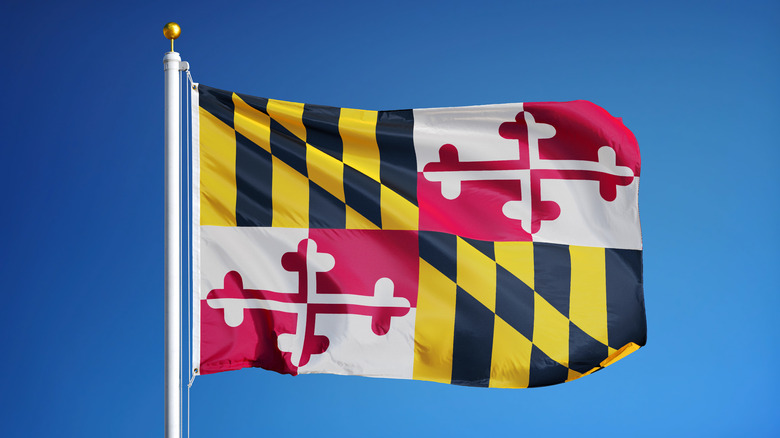The Real Reason Maryland Was Founded
The earliest English settlers of North America arrived with a variety of different motives. Some wished to explore and seek out new wealth in lands unknown to them, while others wished to escape religious and/or political persecution by placing an ocean between themselves and their homeland. The pilgrims who landed at Plymouth Rock are a popular example of this in the United States. While they had previously found religious tolerance in Holland, they also encountered intolerable poverty there before deciding that a trans-Atlantic voyage held better prospects.
For later arrivals, such as many of England's Catholics, the move to North America was a much more lateral one. As England became increasingly Anglican, Catholics in the country faced constant discrimination. While King Charles I, a Scottish-born Catholic, did not execute or marginalize them as his English Tudor predecessors (save for Mary I) did, his occupation of the English throne did little to end the social divide. For this reason, the colony of Maryland was established with the aim of providing a peaceful existence for English settlers of Catholic background (via Britannica).
Maryland was meant to be a refuge for Catholics
Cecil Calvert became the second Baron Baltimore (Baltimore having been an English-controlled county in northern Ireland) after the death of his father, George Calvert in 1632. Both Calvert and his father were Catholic, the latter having previously resigned from his English political appointments for a plan to unite the English and Spanish thrones. Before his death, George had asked the king to approve a charter for a colony in North America, which he did in 1632 (via Maryland.gov). Responsibility for this new Province of Maryland fell to Cecil, who began soliciting volunteers to colonize the region.
Calvert hoped that fellow Catholics would heed the call per his father's intent, but in fact, many Protestant denominations such as Anglicans, Quakers, and Puritans did so as well (via ThoughtCo). In 1649, the Maryland Toleration Act was passed which secured equal treatment of Christians in Maryland, though other religions and the non-religious didn't receive any protections. While officially a major step forward, this move toward equality was hampered by constant inter-faith conflict that especially grew violent during the English Civil War and the Glorious Revolution. After briefly losing control on religious grounds, Calvert's descendants converted to Protestantism so as to regain their charter (via Tribune-Star).

